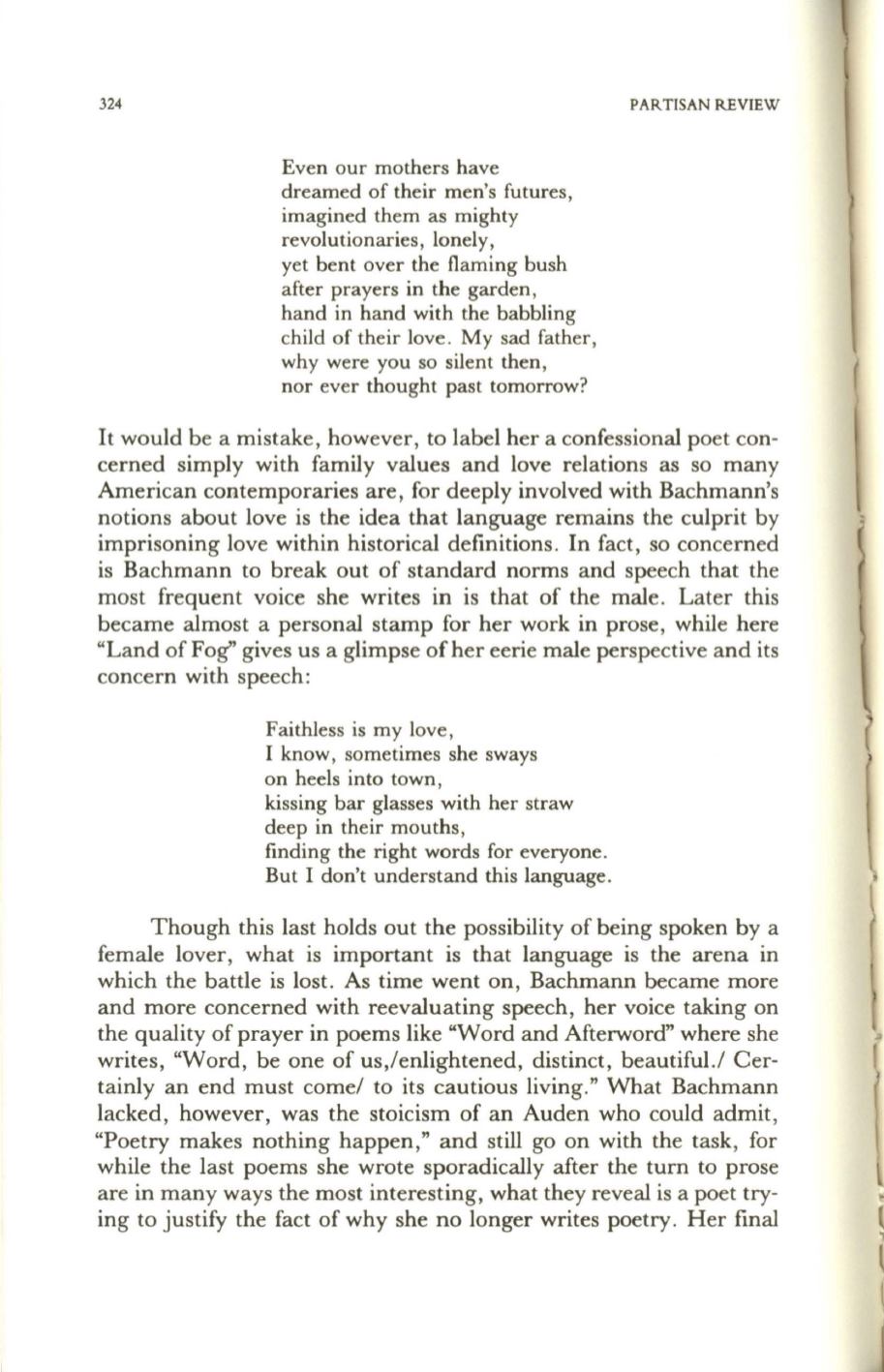
324
Even our mothers have
dreamed of their men's futures,
imagined them as mighty
revolutionaries, lonely,
yet bent over the flaming bush
after prayers in the garden,
hand in hand with the babbling
child of their love . My sad father ,
why were you so silent then,
nor ever thought past tomorrow?
PARTISAN REVIEW
It
would be a mistake , however, to label her a confessional poet con–
cerned simply with family values and love relations as so many
American contemporaries are, for deeply involved with Bachmann's
notions about love is the idea that language remains the culprit by
imprisoning love within historical definitions .
In
fact, so concerned
is Bachmann to break out of standard norms and speech that the
most frequent voice she writes in is that of the male . Later this
became almost a personal stamp for her work in prose, while here
"Land of Fog" gives us a glimpse of her eerie male perspective and its
concern with speech:
Faithless is my love,
I know, sometimes she sways
on heels into town,
kissing bar glasses with her straw
deep in their mouths,
finding the right words for everyone.
But I don't understand this language.
Though this last holds out the possibility of being spoken by a
female lover, what is important is that language is the arena in
which the battle is lost . As time went on, Bachmann became more
and more concerned with reevaluating speech, her voice taking on
the quality of prayer in poems like "Word and Afterword" where she
writes , "Word, be one of us,lenlightened, distinct, beautiful.! Cer–
tainly an end must
cornel
to its cautious living." What Bachmann
lacked , however, was the stoicism of an Auden who could admit ,
"Poetry makes nothing happen ," and still go on with the task, for
while the last poems she wrote sporadically after the turn to prose
are in many ways the most interesting, what they reveal is a poet try–
ing to justify the fact of why she no longer writes poetry. Her final
(
I


